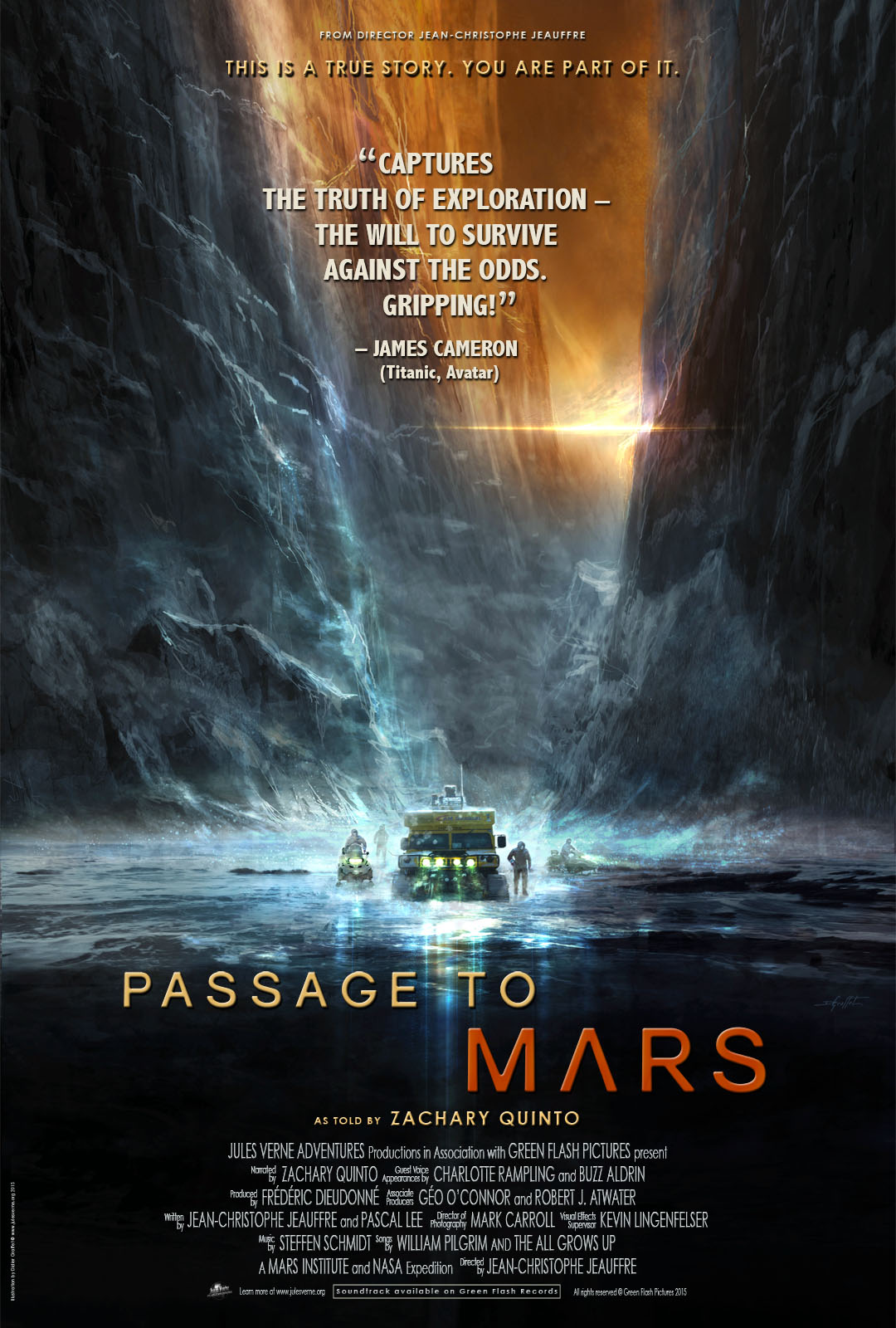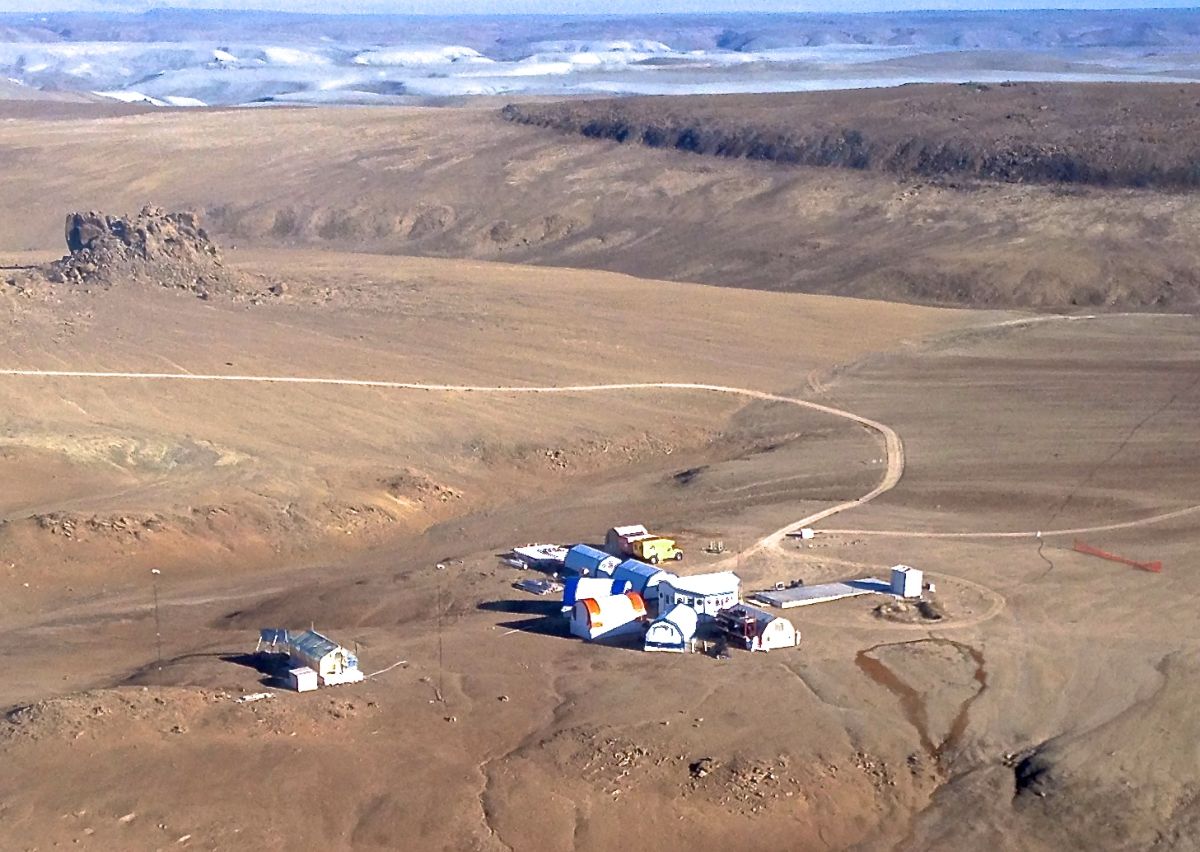
'Passage to Mars': New Film Follows Voyage to 'Mars on Earth'

In the new documentary film "Passage to Mars," filmmakers chronicle the Northwest Passage Drive Expedition, a NASA-supported voyage across land and sea-ice along the fabled Northwest Passage in the Arctic. The destination for the expedition: Devon Island in the High Arctic, an otherworldly place known as "Mars on Earth."
The primary goal of the expedition was to deliver the NASA Haughton-Mars Project's (HMP) Okarian, a specially modified Humvee, so it can be used on Devon Island as a pressurized rover simulator for mock Mars missions.
Passage To Mars Trailer #2 HD (2016) / James Cameron's "Gripping!" from Jules Verne Adventures on Vimeo.
A mission to 'Mars'
This impressive documentary film spotlights scientific objectives in astrobiology, geology, geophysics, planetary protection, climate change, and human Mars exploration studies.
"We wanted to have a record of our expedition on film, create a tool to help promote Humans to Mars, and inspire the next generation of explorers with a positive message," explains expedition leader, Pascal Lee, planetary scientist at the Mars Institute and the SETI Institute, and director of the HMP at NASA Ames Research Center.
The expedition includes Mars Institute team members Joe Amarualik, John Schutt, and Jesse Weaver. The documentary film crew included award-winning film director Jean-Christophe Jeauffre of Jules Verne Adventures and director of photography Mark Carroll.

An epic odyssey
"Passage to Mars" is the saga of a crew of six aboard NASA experimental vehicle HMP Okarian, attempting to cross 2,000 miles of Arctic sea-ice to reach NASA outpost on the remote island of Devon – a place on Earth where humans prepare for Mars.
Get the Space.com Newsletter
Breaking space news, the latest updates on rocket launches, skywatching events and more!
This unprecedented adventure, planned to last a few weeks, becomes a two-year epic odyssey of hope, fear and survival. Shot on the breathtaking sea ice on Earth, and on Mars, as captured by robots, this true story is a vibrant, thought-provoking hymn to our thirst for discovery.
"Gripping! Captures the truth of exploration! The will to survive against the odds," legendary film director, James Cameron, has said of the film.

The film will premiere in Los Angeles, California at Laemmle Theaters the week of May 31 to June 5.
"Passage to Mars" opens May 31at Ahrya Fine Arts Theater in Beverly Hills, California. All screenings are to be followed with discussion by: Film director Jean-Christophe Jeauffre; NASA Expedition leader Pascal Lee; film crew; and special guests.
Here's a link to view the screening schedule details and to obtain tickets:
http://www.laemmle.com/films/40657.
Watch the impressive trailer for "Passage to Mars" at: https://vimeo.com/153978048.
Leonard David is author of "Mars: Our Future on the Red Planet," to be published by National Geographic this October. The book is a companion to the National Geographic Channel six-part series coming in November. A longtime writer for Space.com, David has been reporting on the space industry for more than five decades. Follow us@Spacedotcom, Facebook or Google+. Originally published on LeonardDavid.com.
Join our Space Forums to keep talking space on the latest missions, night sky and more! And if you have a news tip, correction or comment, let us know at: community@space.com.

Leonard David is an award-winning space journalist who has been reporting on space activities for more than 50 years. Currently writing as Space.com's Space Insider Columnist among his other projects, Leonard has authored numerous books on space exploration, Mars missions and more, with his latest being "Moon Rush: The New Space Race" published in 2019 by National Geographic. He also wrote "Mars: Our Future on the Red Planet" released in 2016 by National Geographic. Leonard has served as a correspondent for SpaceNews, Scientific American and Aerospace America for the AIAA. He has received many awards, including the first Ordway Award for Sustained Excellence in Spaceflight History in 2015 at the AAS Wernher von Braun Memorial Symposium. You can find out Leonard's latest project at his website and on Twitter.









